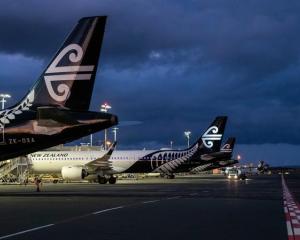
Crucial to it getting a US cash flow boost under way is acceptance of coding for its Cxbladder tests then acceptance of national pricing, due out in November.
The Dunedin bladder cancer diagnostic company's annual shareholder meeting in Dunedin attracted more than 30 investors, and was streamed live online.
High on the shareholder list of questions was cash burn, cash in hand and whether more capital would be sought from them.
Pacific Edge chief executive David Darling said "We're confident cash sales will grow for full-year 2019, to get to cash flow break-even as soon as possible".
Pacific Edge is yet to turn a profit in 15 years years and has accumulated losses of $115 million.
A capital-raising last November boosted funds by $21.3million and at year-end in March it had $16.2million cash in hand, but in late July a private US med-tech fund took a 1.75% stake in the company for $2.6million.
Pacific Edge chairman Chris Gallaher said the capital raised had added depth to the share register.
"The board and management have cash and cash flow front of mind ... in this cash-burn phase," Mr Gallaher said.
At question time he was asked twice by shareholders, and later by the ODT, if another cash injection from shareholders was needed, but would only reiterate the cash position was being "closely monitored".
One shareholder claimed cash burn was running at $50,000 a day; which would equate to more than $1million a month, a figure similar to analysts' previous estimates.
Mr Gallaher raised the prospect of unpaid remuneration, or "back pay" owing for tests which was yet to come on to the books.
In question time, chief financial officer Kate Rankin said the "back pay" owed was being accrued but not recognised on the balance sheet, until it became cash paid, a sum she said would be of "large benefit" to shareholders.
Mr Darling and Mr Gallaher said after the meeting they could not update the actual amount owed, because they could not say how far back claims would yet go.
Pacific Edge's overall commercial success is reliant on expanding its sales in the US, where it operates a laboratory.
When queried on product uptake by US urologists and remuneration, Mr Darling said dealing with Veteran Affairs; representing millions of people using 300 clinics, was like dealing with 300 New Zealand health boards and their respective needs and policies.
On the other hand, US health giant Kaiser Permanente was "corporate" and slow to deal with, no matter how much encouragement it gave Pacific Edge to "stay the distance" with it and its 11.8million members, he said.
This week two more New Zealand district health boards signed up for Pacific Edge's bladder cancer diagnostic testing programme, as had a high-profile Singaporean medical company which operated in four countries with more than 2million customers.
The news buoyed the share price more than 5% to 33c, albeit the price was down more than 30% on a year ago.
Gisborne's Tairawhiti District Health Board and Counties Manukau board, the country's second largest, has adopted the suite of Cxbladder diagnostic tests alongside the health boards of Canterbury, Waitemata, Mid-Central and in the Bay of Plenty.
At the time, Mr Darling said the new agreement with Manukau reflected the growing recognition of the tests by large healthcare organisations, both here and overseas.












